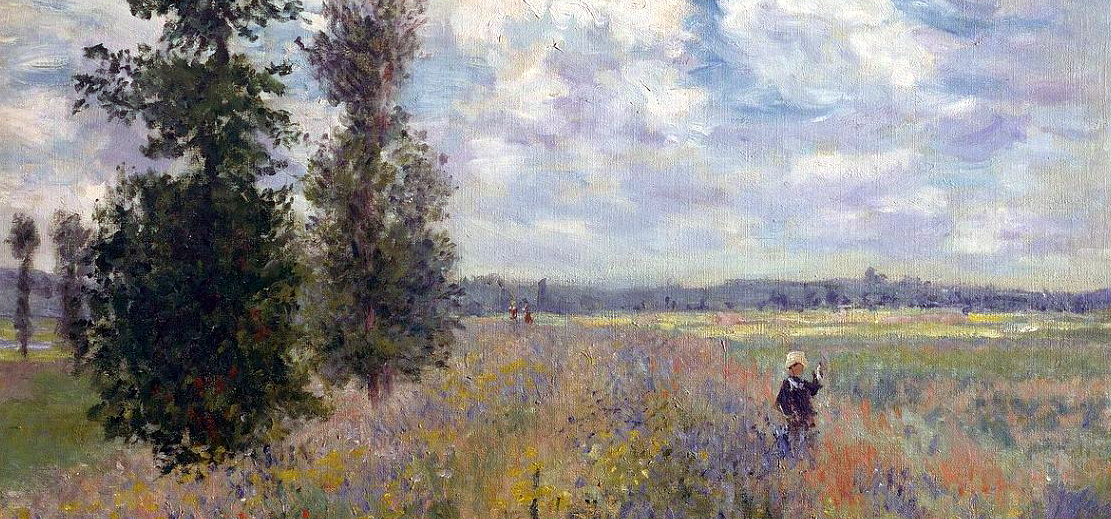I’ve found that while renowned classics are usually powerful, moving pieces of literature, lesser known, oft-overlooked works can be incredibly impressive as well. La Petite Fadette, also published as Little Fadette or Fanchon the Cricket, is one such lesser known novel by French author George Sand in 1848. Through her seemingly peaceful and pastoral books, Sand conveyed sensitive themes to the audience: inequality, discrimination, depression, and wealth versus poverty.
Sylvinet and Landry Barbeau are healthy, handsome identical twin boys born to a large family of farmers. At age fourteen, being the younger yet stronger and more hardworking twin, Landry volunteers to leave home to work at another farm. This is where Sylvinet’s anxiety and depression, borne of loneliness and doubt, enter his life, where they will remain to torment him. Meanwhile, Landry encounters Fadette, a scrawny and generally disliked girl of twelve, who asks for a reward for using witchcraft to find Sylvinet for him one night. This leads to a series of unpredictable occurrences that connect into an intricate love story within the idyllic scenery of the French countryside.
As much as I’ve loved this book since childhood, a recent reread revealed to me some elements that I found less appealing. For instance, as soon as one of the characters returns to her hometown rich, the villagers who’d initially disliked her immediately pay her respect and attention. What’s more, the disapproving father of her supposed fiancé also changes his attitude, asking her to become his daughter. This cliché situation is portrayed in such a way that it seems to be a perfectly natural and reasonable change of behavior on the villagers’ part. I found this disturbing: the villagers, many of whom should be wise old people, had abused her since she was a child. What does money mean to people, and how much can money do? Can money buy back a lost reputation? Not always, of course—but the book illustrates a situation in which, yes, money can establish a person as trustworthy and likeable, despite her “unworthy” past.
Secondly, the novel’s depiction of mental health issues was an interesting and unusual one, in the sense that it portrays the sufferer as its own tormentor. The year 2020, for us, has been difficult, to say the least. Quarantine has increased instances of domestic abuse, fights, and depression among people trapped at home. In La Petite Fadette, the older twin Sylvinet’s depression, also largely developed at home alone, seems to be largely attributed to his own temperament. It is even said later that he has put himself in such a condition, manipulated by his own selfishness. To a certain extent, this is true. Sylvinet’s hyper-sensitivity is quick to plunge him down to the depths of despair, from which he finds it more difficult each time to find his way out of. The novel does a fantastic job of tracing the development of Sylvinet’s isolation and depression through the years of his growth. It also poses the interesting question of nature versus nurture, using the example of twin characters: why is it, and how is it, that Landry is so righteous and independent, while Sylvinet cannot bear the idea of being left alone? Is it really Sylvinet being selfish, or is his temperament overly spiteful and jealous? Was it the personality that he was born with that dictated his life?
Finally, there was the theme of unjust judgment all throughout the book. This is an issue that will touch many people today: the death of Ahmaud Arbery, Breonna Taylor, George Floyd, and many more as we trace them upward against the flow of history. And against the face of the necessary social distancing for the prevention of COVID-19, thousands of people are holding violent protests in North America. Skin color played a role in all of these deaths, causing these people to be judged unfairly and hastily. In the novel La Petite Fadette, the results of such unjust judgment are nowhere as tragic as those we are facing now, but it does yield long-reaching consequences. Furthermore, it implicitly asks the reader: were the villagers justified in considering Fadette’s use of “magic” or “witchcraft” evil and disturbing? Were they justified in treating her abusively and ungratefully, instead of behaving in a mature manner adults should toward children? Personally, I found that villagers were judging Fadette for her unkempt looks and wild mannerisms more than her actual powers which are, in fact, later revealed to be simple scientific processes that were simply novel to them then.
It’s impossible, I suppose, to live a life without judging others. Dialects, clothing, culture, and hair texture all become factors by which we judge one another. The novel La Petite Fadette may seem simple and uneventful, but I found it to be extremely influential and thought-provoking, with eerily relevant messages for us now in 2020, but with the accompanying gentle reminder that love still exists among the strife of the world. We can hope that as the years go by, past wrongs will be remembered, but with no more violent anger, and we can use them to steer our forward steps in the right way. I’d like to sum up this post with the following quote from the novel: “In times when evil comes because men misunderstand and hate one another … remind men, hardened or discouraged, that pure morals, tender sentiments, and primitive justice still exist, or at least can exist, in this world.”
